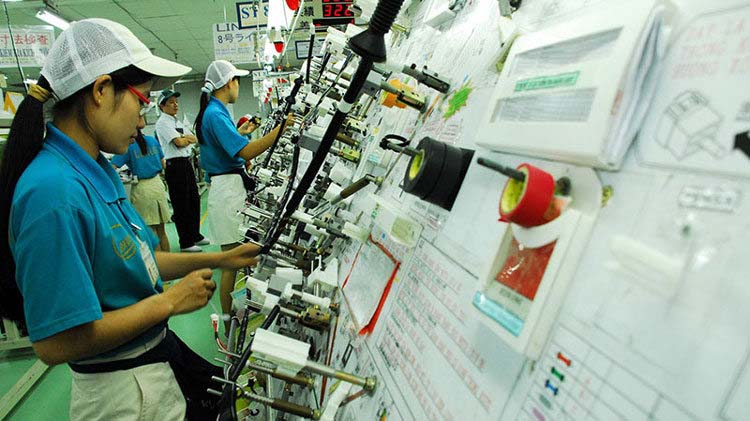


According to the Business Registration Agency (Ministry of Planning and Investment), 11,027 new enterprises were established in May, with a total capital of VND104.8 trillion (US$4.6 billion).
The number of newly established enterprises fell by 24% against the previous month but rose by a slight 0.7% compared with a year earlier. In addition, the total new enterprises in the first five months of 2018 went up by 3.5% over the same period last year.
The rise in the number of new enterprises shows the positive results of the recent efforts undertaken by the central government and ministries to improve the business environment, particularly the elimination of a wide range of sub-licences, tax and customs reforms and the application of electronic tax declarations and payments.
According to a 2017 report by the World Economic Forum, Vietnam’s competitiveness jumped five places to 55th among 137 economies.
But the number of approximately 33,400 enterprises which temporarily halted their business in the January-May period was a significant figure, which requires further improvements to the business environment and efforts to enhance domestic enterprises’ resilience amid increasingly fierce competition.
The business community stated that, despite the bright spots in administrative reforms, enterprises are still facing a number of problems, including access to credit, policy hurdles and weak links between themselves.
According to the Central Institute of Economic Management (CIEM), although most of Vietnam’s indicators on the ease of doing business have witnessed improvements in their scores and ranks in absolute terms many indicators have seen little or no improvements at all.
Notably the indicators concerning registering property, enforcing contracts and resolving insolvency showed unchanged or lower scores from the previous year. The indicators for starting a business and resolving insolvency continued to remain at the bottom of the ranking.
To support enterprises, lowering business costs should be a top priority. In order to do so, obstacles must be removed to increase enterprises’ access to capital and labour, as well as decreasing the costs of fulfilling their obligations towards the state.
However, despite aggressive instructions from the central government, many of the commitments to cut administrative procedures and business regulations made by a lot of ministries and agencies are still on paper and have yet to be translated into action.
The CIEM stated that the government’s target to cut 50% of business regulations in 2018 is attainable but there is still a bumpy road ahead.
Therefore the government should take bolder reforms to exert more substantive and comprehensive impacts, while stepping up the overseeing of ministries’ commitments to cut business regulations.
The government also needs to pressurise and enforce stronger discipline on those responsible for factors with low scores and ranks.
Only when these measures are taken will enterprises be able to have more confidence and grow in a sustainable manner.